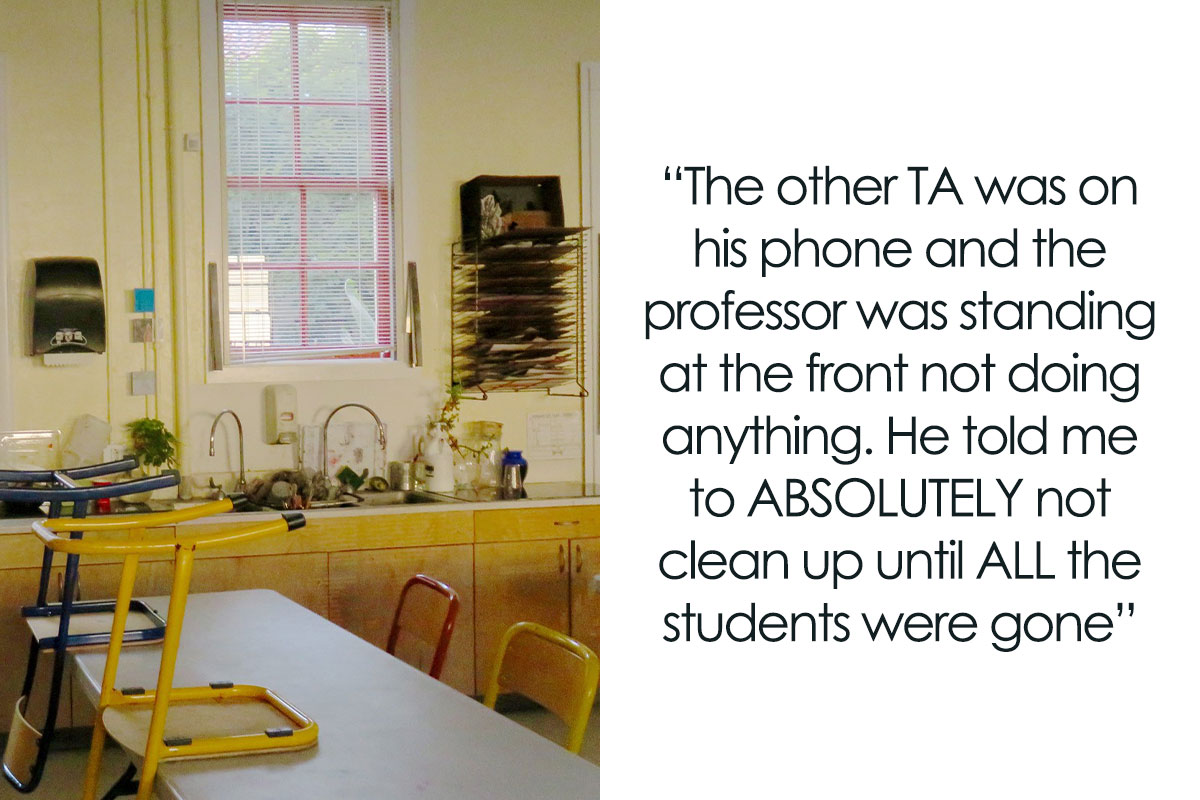
Professor Abuses Assistant’s Time, Is Shocked When Their Overtime Runs Out And Things Hit The Fan
It always sucks when you figure out a way to do things more efficiently, benefiting everyone around, and… Someone complains and you’re suddenly forced to do things the old way. The lame way. The my-way-was-way-better way. Ugh.
In today’s malicious compliance story, the exact same thing happened. Except this time around, the teller of the story decided she wouldn’t put up with being disrespected and underappreciated.
More info: Reddit
It’s so embarrassing to be shouted at in a work environment, yet it happens far more often than it should
Image credits: Fabrice Florin (not the actual photo)
The poster was working as a teaching assistant at university and they would clean up the lab while another assistant and the prof would answer students’ questions
Image credits: Material-Egg7428
When the poster missed a question because she was working, she was shouted at by the prof and told to clean up only once there were no students in class
Image credits: Material-Egg7428
The poster complied, causing the prof and assistant major delays, and on top of that, she couldn’t return to help because of university regulations
The poster is a Master’s student, working as a Teaching Assistant (TA), helping out on a lab course with a lot of set-up and cleanup. She would clean up at the end of lectures, when only some students would be left, still asking questions, which could be answered by the prof and another TA.
Once, she missed a question from a student while doing cleanup and the prof snapped and yelled at her. This prompted OP to stop cleaning up during the lectures, which would slow everything down, making the prof and other TA stay on for way longer than usual.
The prof said that OP could start cleaning up during the lectures again, but she had already used up all of her extra hours for the semester and wouldn’t be helping.
In the comments, the poster said that the look on the professor’s face when he realized that he’d be getting no more help from the poster was priceless. The other TA was pretty useless, being on his phone, taking to lab techs, and dozing off in general.
A smart thing the poster did was report the hours of work she put in and because they couldn’t exceed 65 hours of work per term, that meant that she would be off the hook with this rude professor. The other TA had done no such thing, so he was left cleaning up for the rest of the semester.
Image credits: UC Davis College of Engineering (not the actual photo)
You may have been surprised when you read that the professor went as far as to even yell at OP, and for such a small mistake, but if you dig deeper, a lot of Master’s and especially PhD students experience similar behavior.
The toxicity in academia is an important topic in the community, with people trying to understand how to solve or mitigate this issue. In order to gain more perspective on the topic, Bored Panda reached out to Dr. Andrew Stapleton, who has a PhD in chemistry and has spent about 10 years in academia doing everything from research to securing funding to supervising students.
Nowadays he has taken to helping others make the right career decision, sharing his expertise on his YouTube channel and his Academia Insider website, which houses tons of advice for burgeoning academics.
According to Andrew, academia is frequently perceived as toxic because of various reasons, which vary institution to institution, but seem to follow a similar pattern. The limited funding for research grants, highly competitive nature of academia and the use of flawed metrics to publicly compare academics all contribute to the issue.
Additionally, university systems of promotion and recognition often reward toxic behavior, thus creating a cycle of toxicity, with people who are willing to trample others for their own gain at the top. “Almost everyone I know in academia has a horror story or two, or three, or four!” Andrew says.
Academics also should recognize the luck that has a significant impact in academic career success. “This creates a ‘resentment gap’ between the academics who have had a lucky break and those who have not,” Fr. Andrew continues, saying that the lucky ones are usually unwilling to recognize that luck played a very important role in their career and rub it in the faces of everyone else.
Image credits: Matilda Wormwood (not the actual photo)
Andrew believes this issue stems from how success is measured in academia. “It’s tempting to say the whole reward structure in academia needs to be burnt to the ground, and we need to start again – but perhaps that’s too much for the traditionalists at the university to process. So, let’s start small.”
Andrew suggests the things that universities could do are move away from the H-index as the primary driver of promotions in the university, promote several young academics for the price of one “big name” professor, encourage established academic staff to apply for grants with early career researchers (ECRs) instead of competing against them, and provide longer-term contracts for ECRs so they can experience a couple of failures before getting a grant.
As for students suffering from a toxic academic environment or, even worse, a toxic supervisor, Andrew has this to suggest. Even before you begin your graduate studies, you should find a pleasant supervisor or research group. You should speak to current research students to get a feel for what it’s like to do research with them.
You could also find a mentor or a supportive group of peers who can help you navigate the toxic environment. Dr. Andrew shares how he would do this: “I used to meet up with a professor from outside my department who really helped when things were going south.”
Finally, it’s in your best interest to set boundaries with your supervisor. Establish boundaries around your work and personal life to avoid burnout and protect your wellbeing. “This may involve limiting your work hours, prioritizing self-care activities, and saying no to unreasonable requests or demands.”
Dr. Andrew finishes the interview by saying that higher-ups set the culture, so it may take a lot of time to steer academia away from toxicity without drastic changes. As a young PhD student yourself, avoid toxicity when you see it and remember that you may be squeezed out or looked down upon if you get in people’s bad books.
Image credits: Pixabay (not the actual photo)
Being underappreciated sucks in any environment. If it’s at home, you’ll start feuding with your siblings and parents, eventually leading to huge conflicts and long stretches of no talking. At work, you’ll start despising your coworkers and eventually your job, which will tank efficiency and job satisfaction of everyone surrounding the drama.
If you think you may be unappreciated at work, but are unsure, Indeed has a couple of pointers. You may be unappreciated if you: receive a lot of negative feedback, but rarely any praise, you don’t get a lot of feedback on large projects, if other people take credit for your work or if you feel like others are getting praised and promoted, while you’re being left behind.
Harvard Business Review has a couple of tips to help you broadcast the things that you do in order to get the recognition and praise you deserve.
Before you start, you have to make sure that you’re being realistic. You should evaluate whether the things that you’re doing are somehow extraordinary and noticeable. Do people have a chance to see your work somewhere? If you’re unsure about these things, you could ask a colleague you respect to tell you how they see things.
The next step would be talking to your boss. You may ask them about your performance and what you could do to improve or have your work noticed more. You may also want to give your boss a short list of your recent achievements, to put things into perspective.
You should also make sure that you recognize the work of others. When you do this, others will also be more likely to appreciate you as well and recognize your achievements in turn.
Finally, if you cannot get recognition from others, be sure to adequately evaluate yourself and recognize your achievement. It’s important to be able to validate yourself internally, rather than externally, as it’s a more reliable and stable form of recognition.
The poster’s story made a splash on Reddit, collecting nearly 14k views in about a day. It also got 275 comments, in which people supported the poster, resonating with the frustration of not being appreciated and even humiliated in front of others. Have stories of pro revenge in academic or work settings of yourself? Type ‘em up in the comments!
The commenters celebrated the poster’s story, saying that the prof got what he deserved
17Kviews
Share on FacebookAre professor's fingers broke? Why can't he help? And students should clear their own area.
Are professor's fingers broke? Why can't he help? And students should clear their own area.

 Dark Mode
Dark Mode 

 No fees, cancel anytime
No fees, cancel anytime 



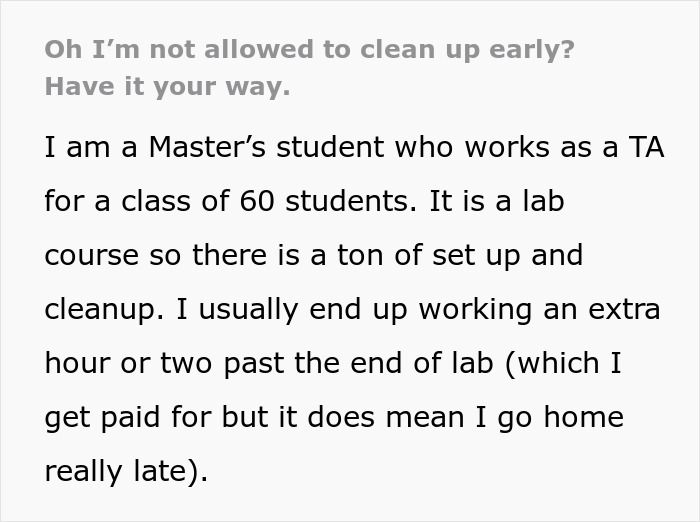

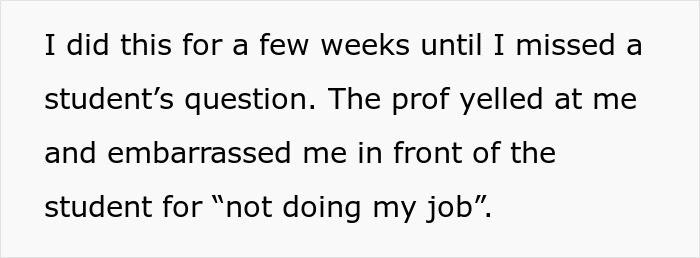
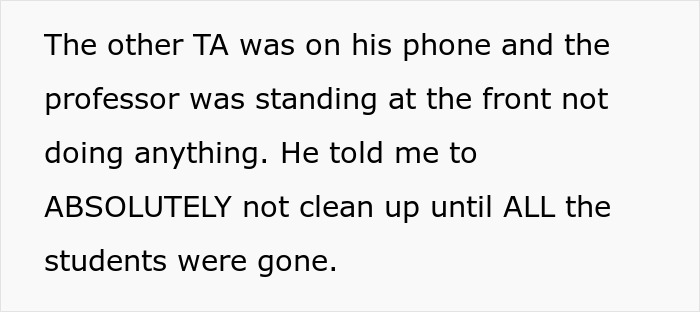
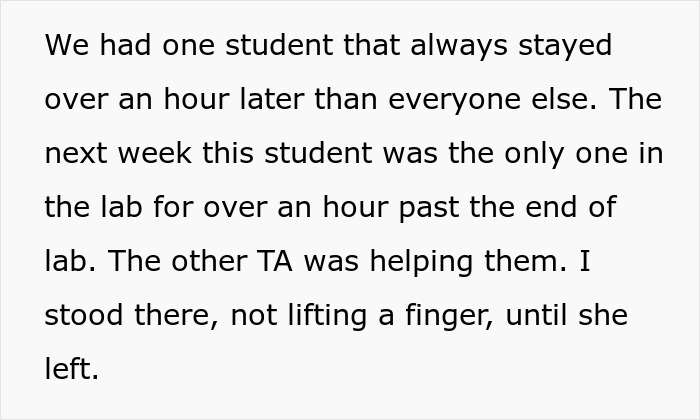
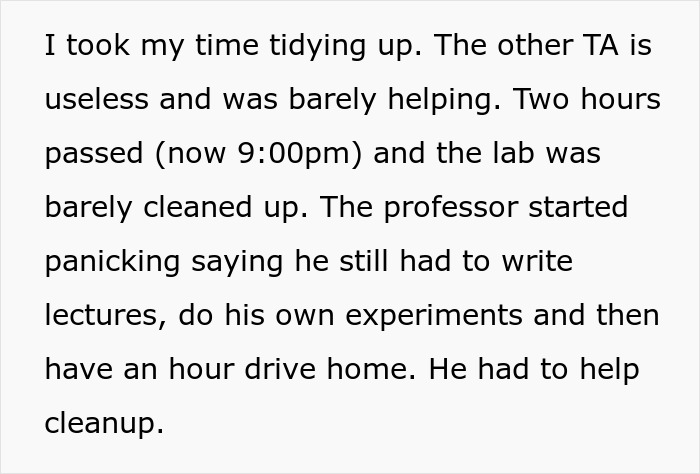
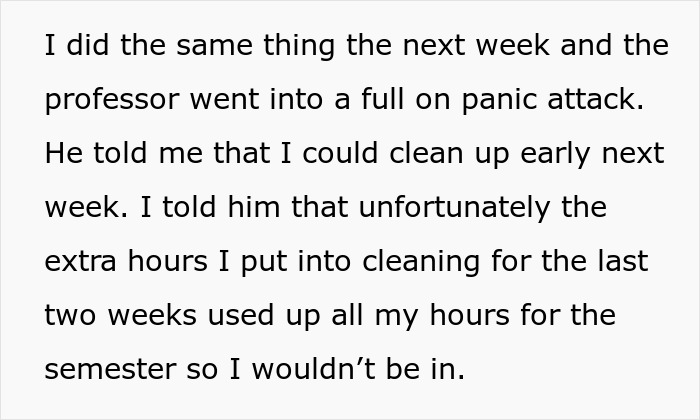
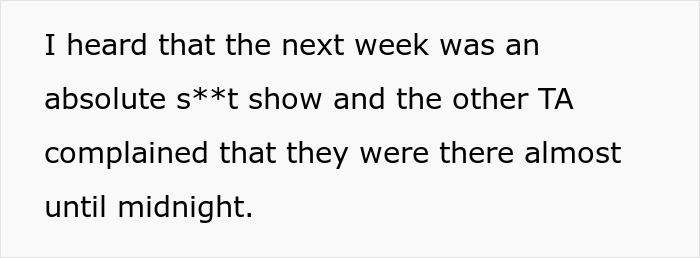
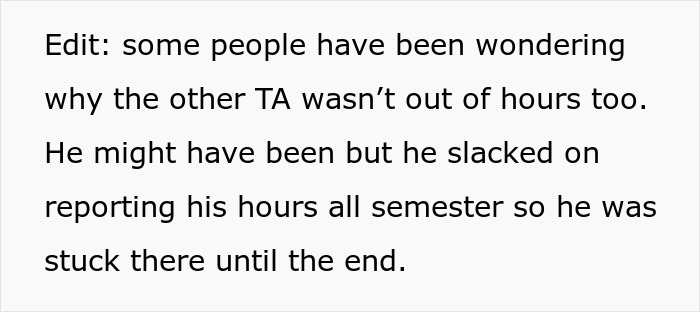
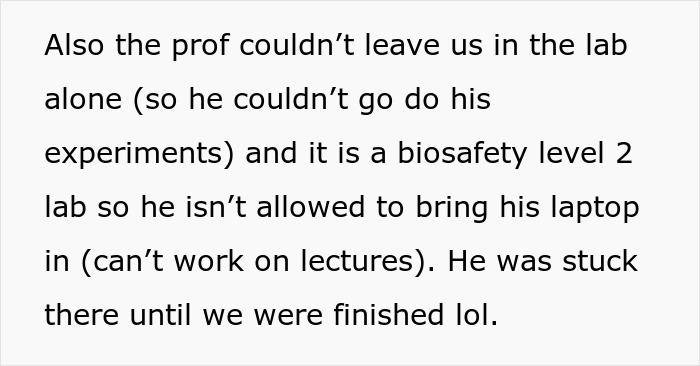


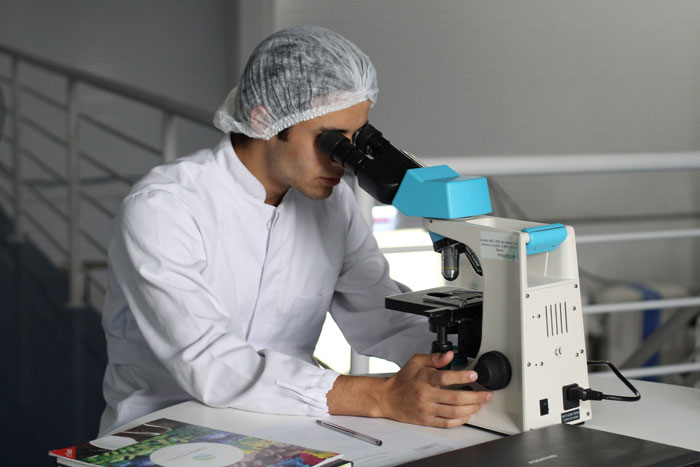
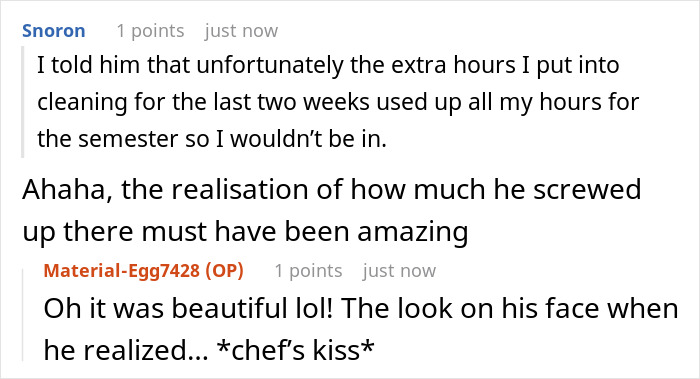

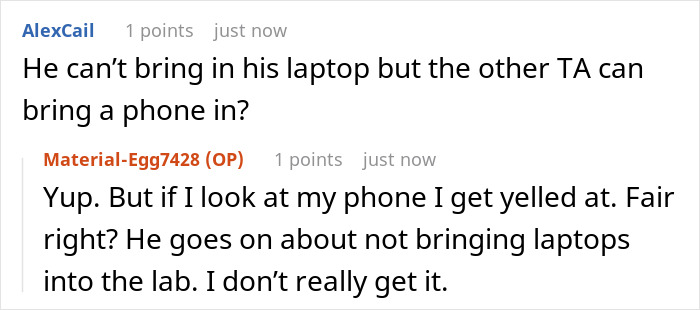
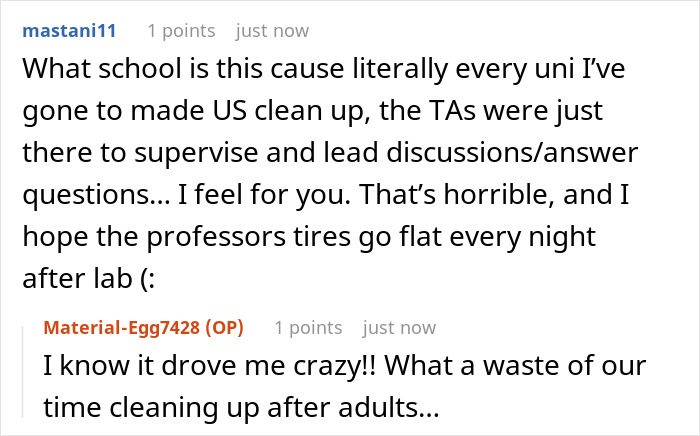
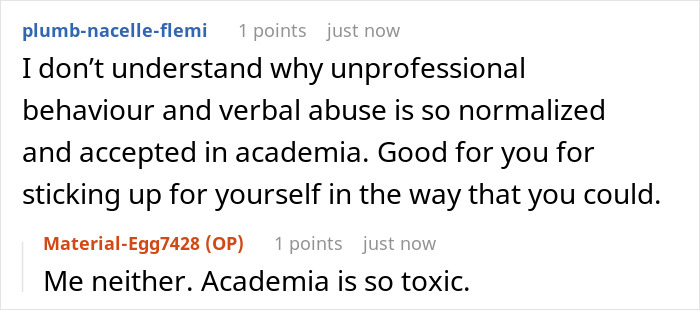
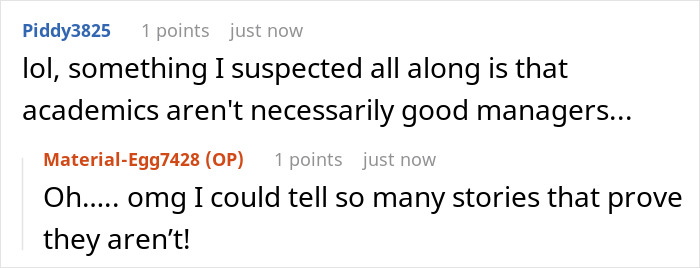
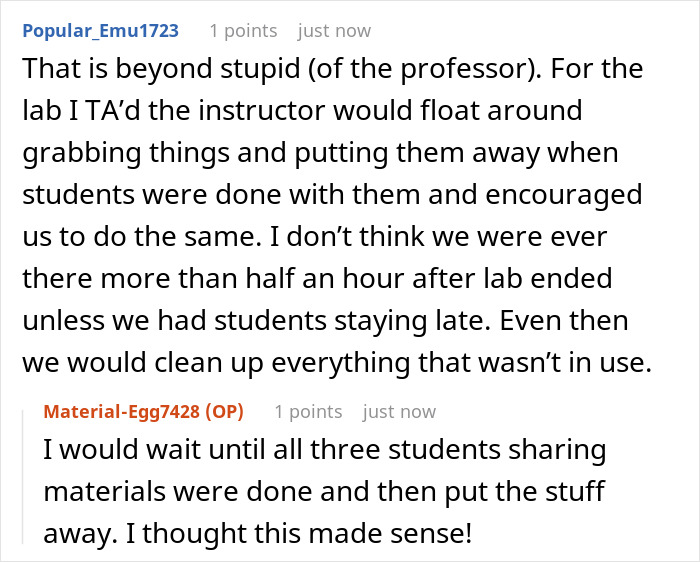
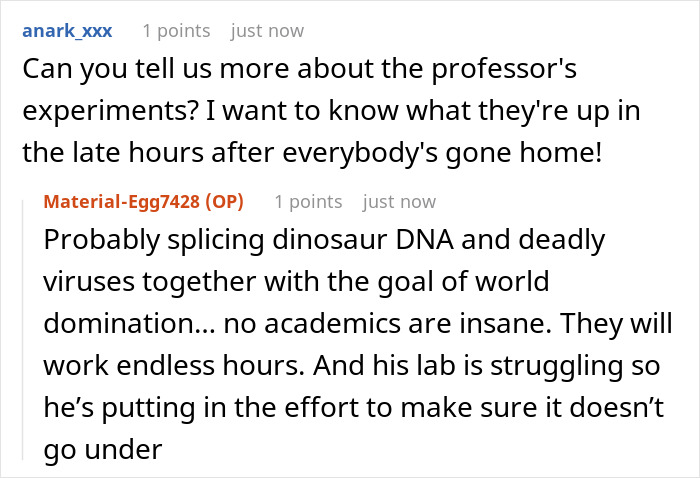
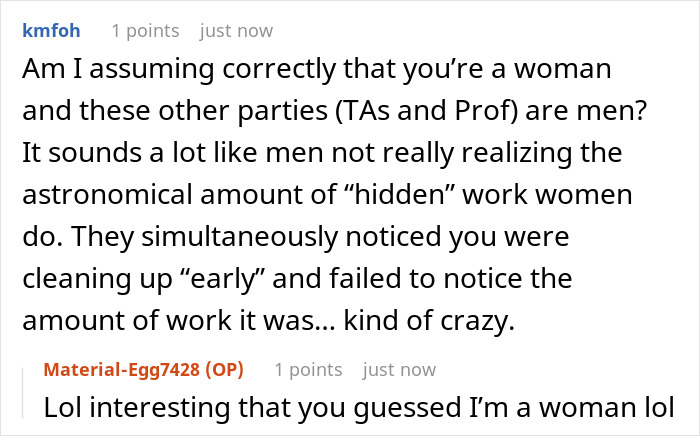
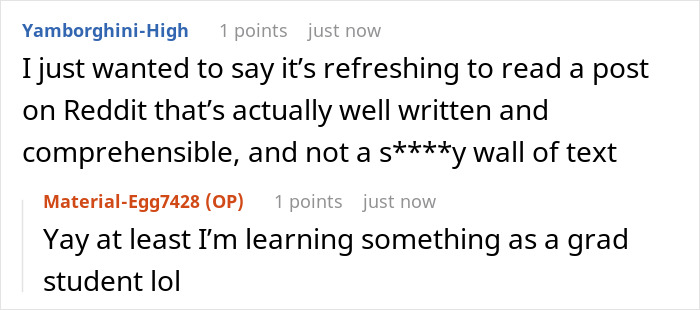
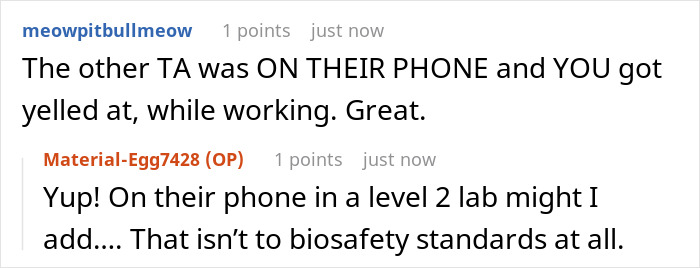














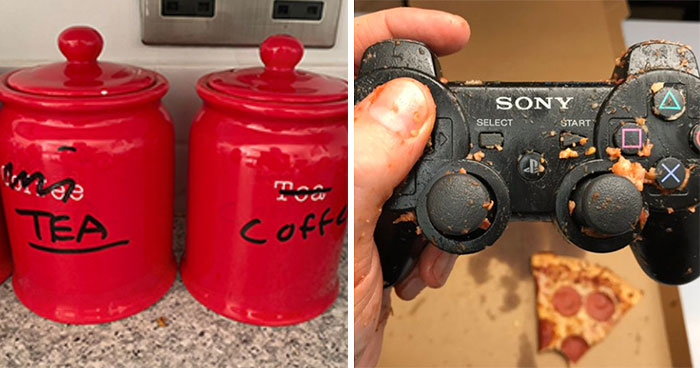
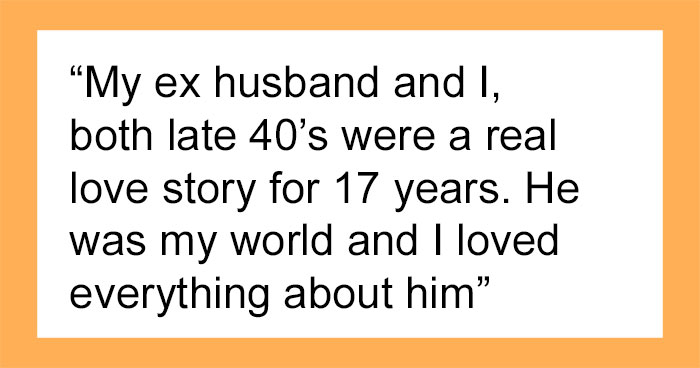


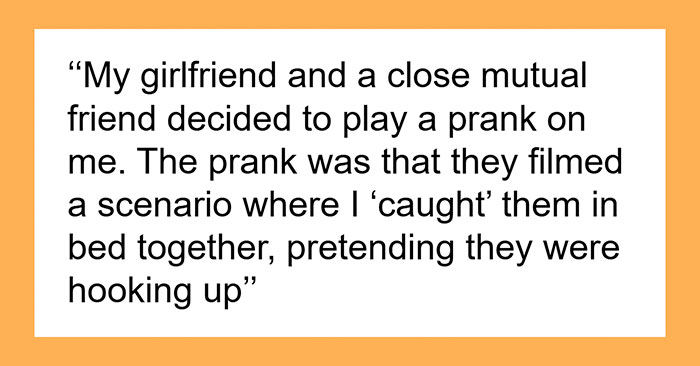
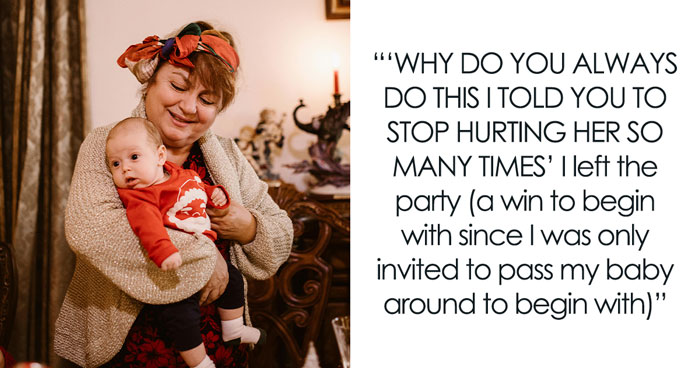


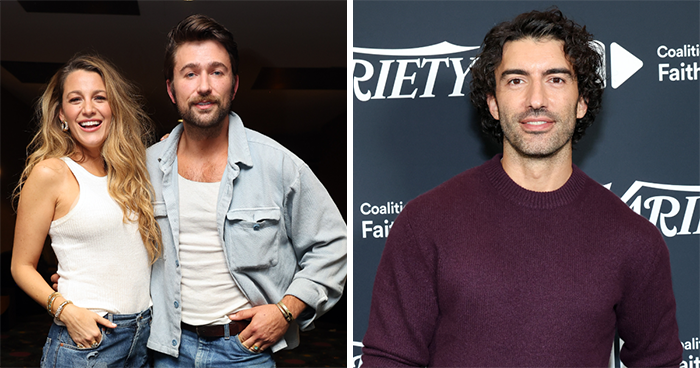


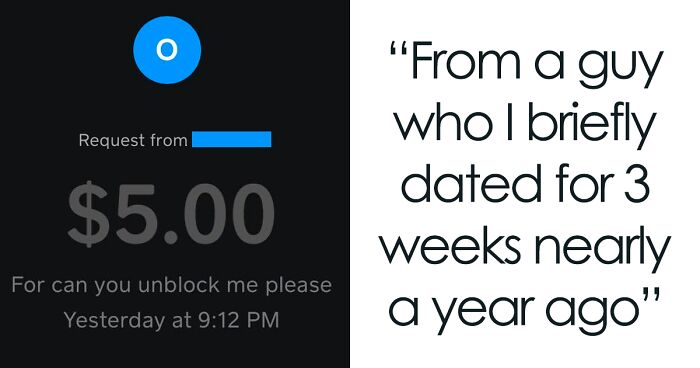

37
1